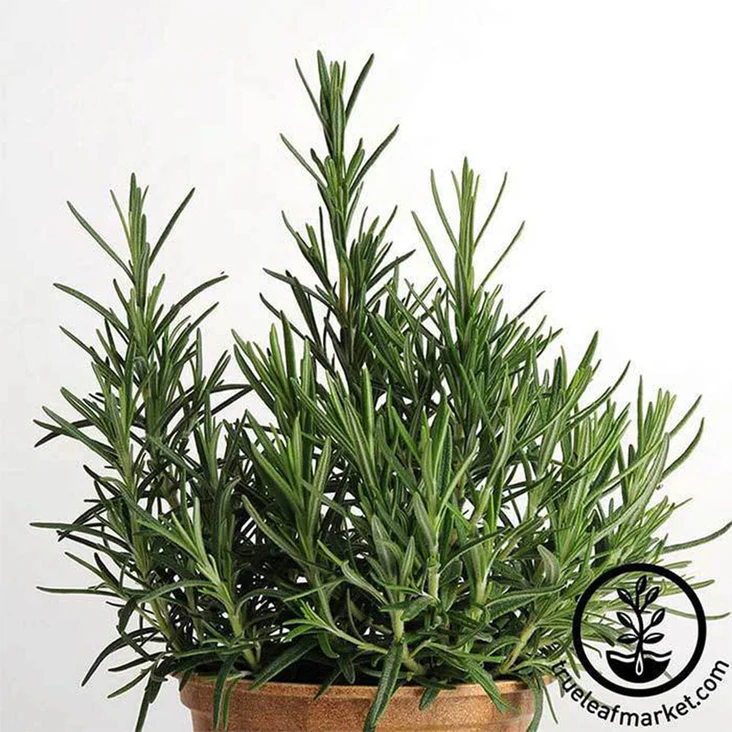How to repel mice from your yard – 5 ways to discourage these rodents
Methods to help deter mice before they become a nuisance to you and your plants
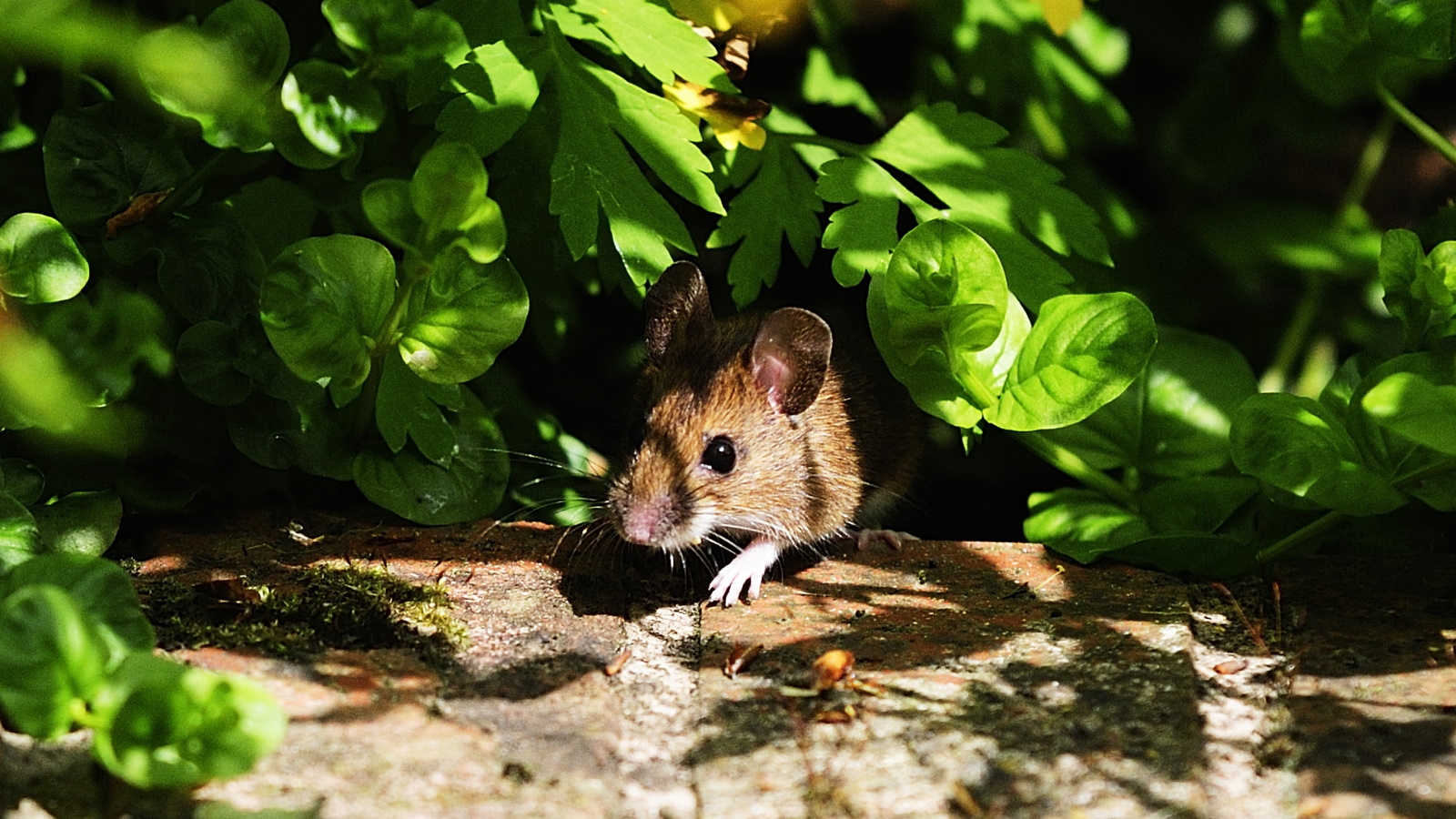

There's no denying that, like other wildlife, mice are cute to look at. However, not everyone is pleased to let them run around their yard and nibble on their plants. If this is you, you might be seeking ways to repel mice from your yard.
There are plenty of ways to get rid of mice once they take up residence on your land or in your home, but deterring them is the first point of call. Using natural mouse repellents is a win-win, discouraging them from coming to yard and leaving them unharmed.
Even if your main goal is to prevent mice from getting into your house, finding out how to repel mice from your yard is fundamental to keep these rodents away. Here, we've put together five key repelling methods.
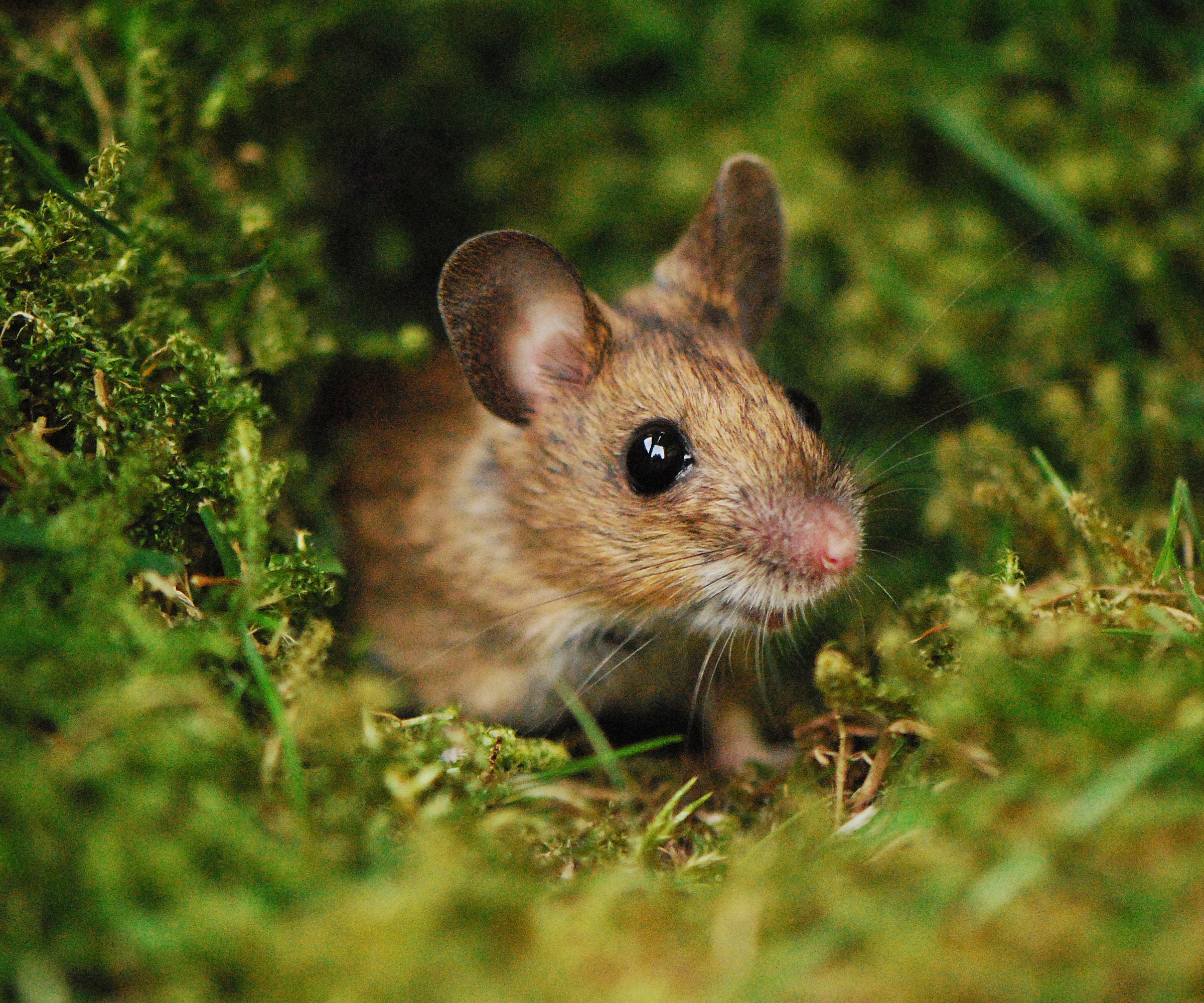
5 ways to repel mice from your yard
Whether you use the best pest-repellent plants or keep on top of backyard cleaning, implementing some small changes in your outdoor space will help keep mice at bay. The below five methods are a good place to start:
1. Grow mouse-repellent plants

Mouse-repellent plants are those that mice just can't stand being around. These are often plants you might use in a fragrant garden, as mice have a strong sense of smell and find the scent of some plants overpowering.
'Certain plants are thought to deter mice to varying degrees. Examples include peppermint, lavender, and several herbs in the allium family (garlic, onion, chives, etc.) because they contain chemical compounds that allow them to emit odors that are unpleasant to mice,' explains Allan Bossel, pest control expert and Operations Expert at BBE Bed Bug Exterminator.
Mice like to feed on both edible and ornamental plants, which is why it's beneficial to have plants like marigolds in a vegetable garden. Although, you shouldn't rely solely on mouse-repellent plants to repel mice from your yard.
'Although these plants may be effective deterrents to some extent, there is only so much they can do,' says Allan. 'Typically, mice would have far more possible entry points to your home than you could realistically surround with these plants. They’re very persistent, versatile creatures,' he explains.

Also known as Vera Lavender, this flowering perennial herb is native to the Mediterranean. It is highly fragrant with a scent unpleasant to mice.

Allan Bossel currently serves as an Operations Expert at BBE Bed Bug Exterminator, where his extensive experience in bed bug and pest control allows him to maximize BBE’s service potential. Having founded his own pest control business in Michigan, Allan’s background is rich with over a decade of professional pest extermination and lab work experience.
2. Introduce natural predators
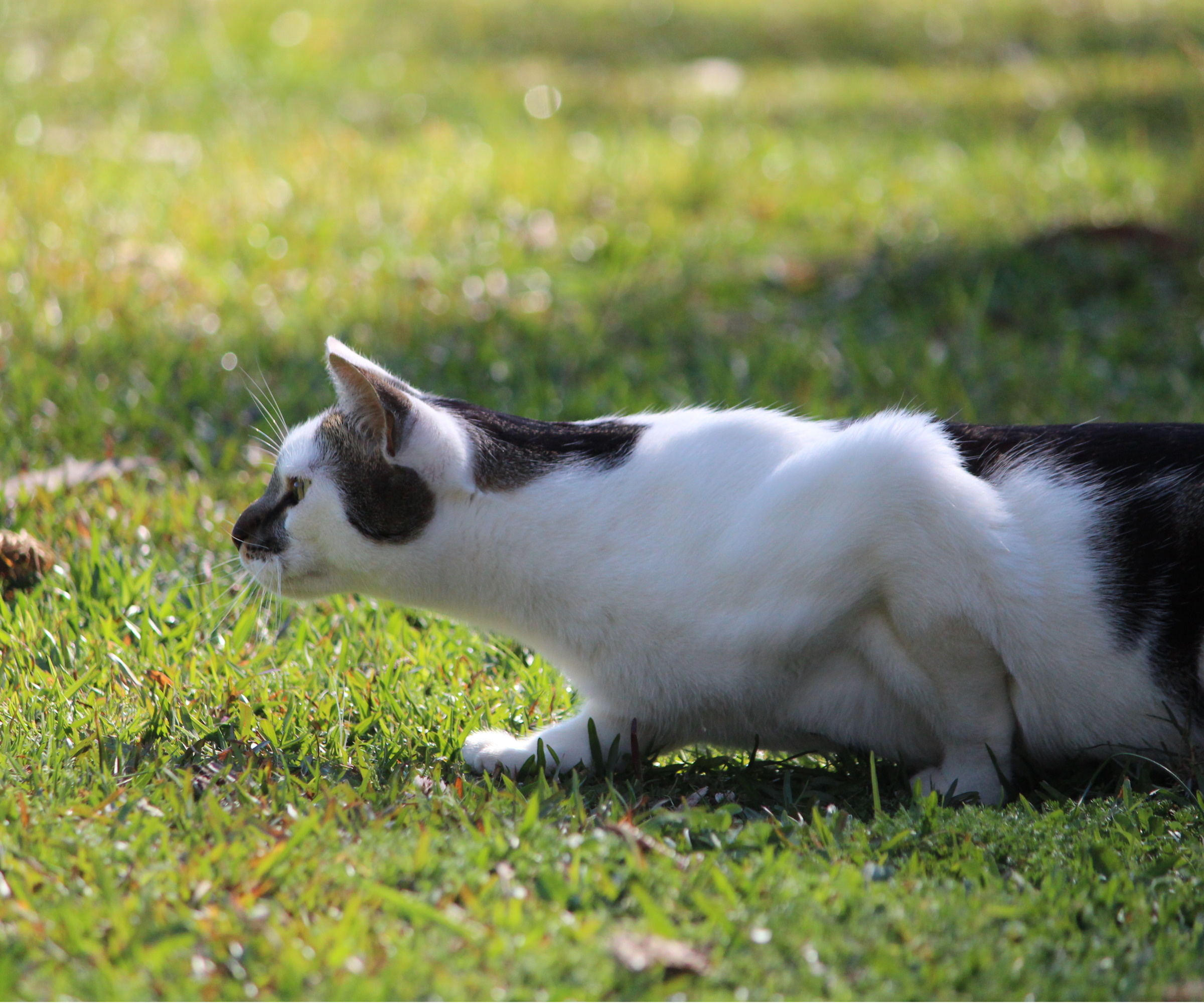
One of the easiest ways to repel mice from your yard is by introducing something in your yard that scares them away - predators. This can be anything from owning a cat to growing plants for birds to attract them to your yard - try planting these flower seeds for birds, bees and butterflies from Amazon, for example.
'Keep outdoor cats or attract owls and other natural predators by installing birdhouses or owl boxes,' says pest control expert Joshua Malik from Joshua Tree Experts. These predators help maintain a balanced ecosystem and control mouse populations effectively,' he explains.
Something to keep in mind, however, is that cats may also chase away other wildlife. 'While cats may help to reduce rodent populations, they are indiscriminate predators and may have negative impacts on the populations of other animal species such as rabbits and songbirds to name just a couple,' notes Craig Sansig of Viking Pest Control.
You might find it useful to also read our guide on how to protect garden birds from cats.

Founder and CEO of Joshua Tree Experts, a home services franchise that provides tree maintenance, lawn care, and pest control services – a company that he has literally grown from the ground up

Craig Sansig is an Associate Certified Entomologist and Public Health Entomologist with 23 years of professional pest management experience. He holds licenses in eight pest control categories in four states, and has been the Service Director for Viking Pest Control since 2020.
3. Remove food sources for mice
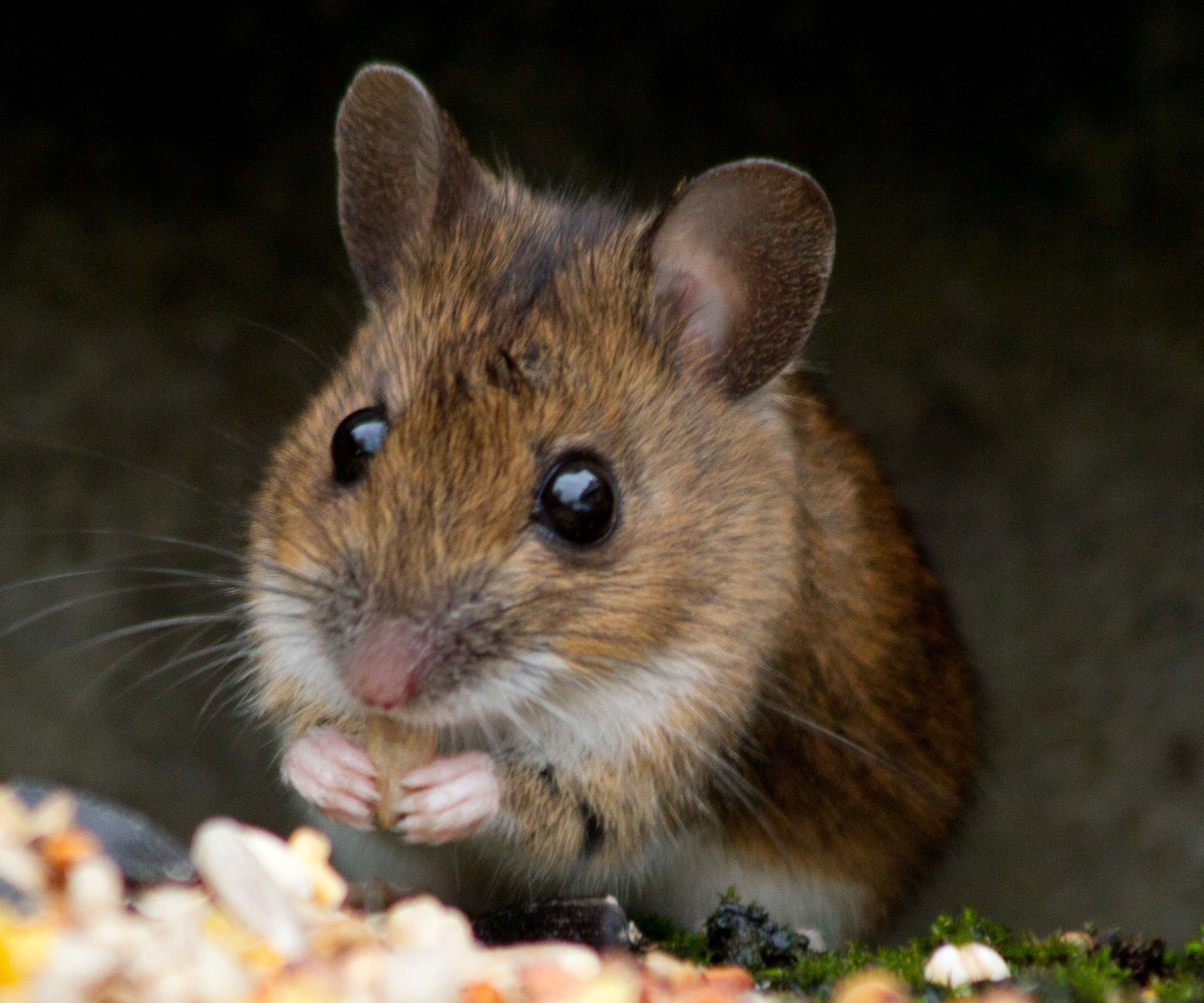
'The mouse population around your home will increase if you provide food and shelter,' says Sean Greenhow, CEO of Greenhow Pest Control. 'By reducing any or all of these you will drop the mouse population in your yard. The goal is to make your yard less hospitable to mice,' he explains.
Taking away food sources for mice, therefore, makes your yard less appealing and discourages them to stay.
Food sources in your yard include bird feeders dropping seed and open bins. 'Garbage is the most obvious, but there are other things that mice will chew on or consume,' notes pest control expert, Blair Calder. 'For example, a lot of natural products such as wicker and some textiles are sought after by rodents for nesting materials,' he adds.
It can also be wise to secure your compost bin, which will help to keep rats away from your yard as well as mice. This can be as simple as using this wire mesh from Amazon to cover an open compost bin.

Sean Greenhow, CEO of Greenhow Pest Control, is a seasoned New England pest management and arboriculture expert. Sean brings 20+ years of experience and holds multiple state licenses in pest and turf control, as well as certifications as an Associate Certified Entomologist (ACE) and a Massachusetts Certified Arborist.

Blair Calder is the Founder & CEO of Automatic Trap Company located in Sonoma, CA. The company focused on humane solutions to rodent and pest problems was founded in 2016 and serves the needs of consumers and businesses located nationwide.
4. Keep your yard tidy of debris
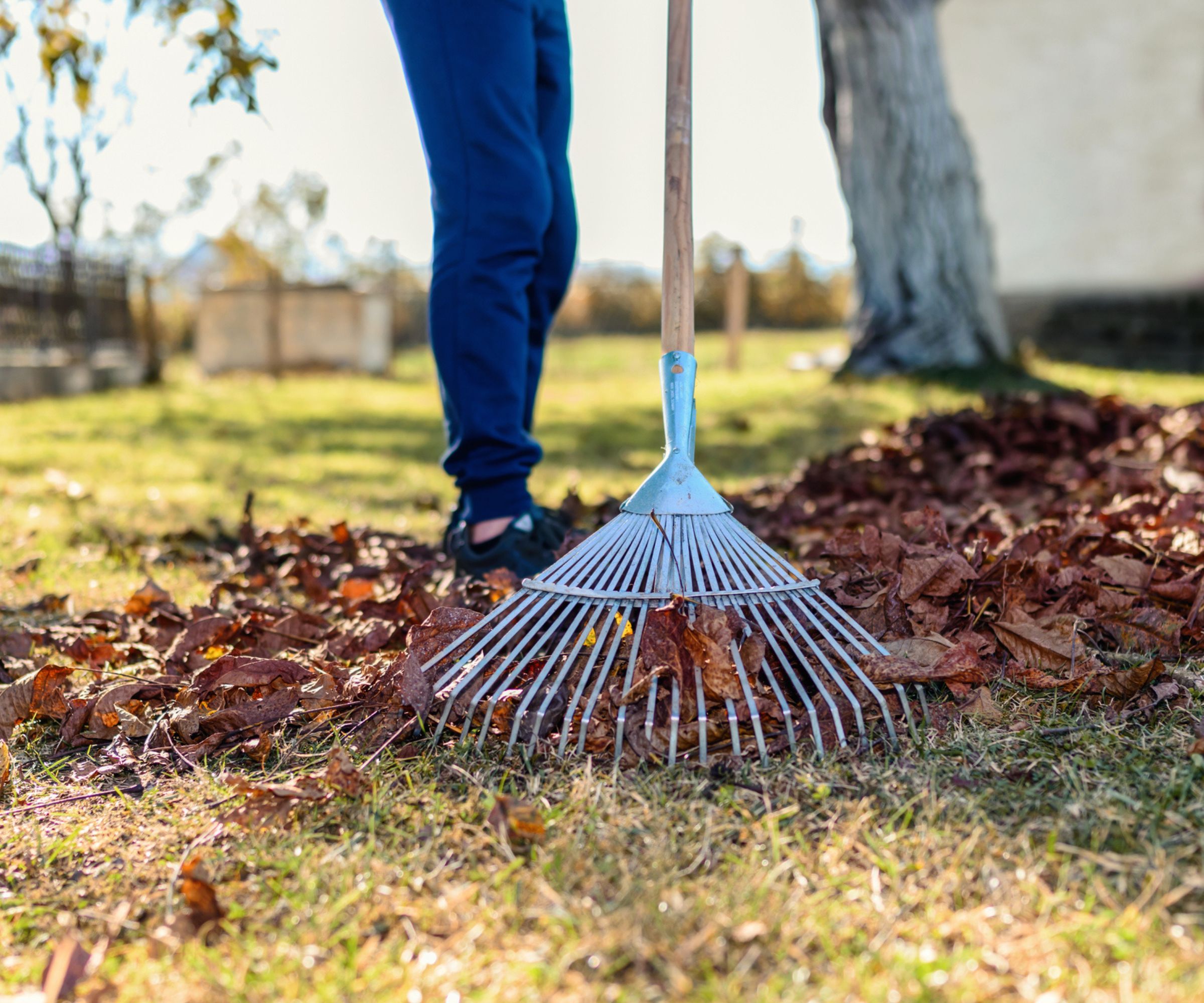
As mentioned above, shelter is one of the things mice are seeking when coming to your yard. If you would rather not have these rodents take up residence here, keep your yard tidy.
'Clear away wood piles, fallen tree limbs, and leaves where mice can nest or hide. Keep landscaping tidy and remove low ground cover plants near your home to make the environment less inviting,' advises Sean.
You can also collect fallen leaves and use them to make leaf mold, or use them to make compost.
Take care to also put away tools in proper backyard storage and take inside anything that doesn't need to live in a permanent spot outdoors. You might even use this as an opportunity to declutter your backyard.
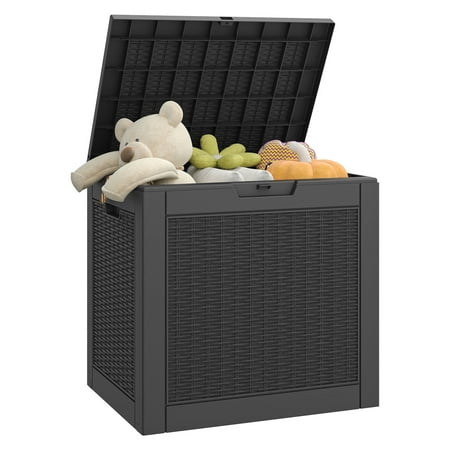
With a spacious 31-gallon capacity, this deck box provides ample space to store cushions, children's toys, garden tools, sports equipment, and more to keep your outdoor space tidy.
5. Seal entry points
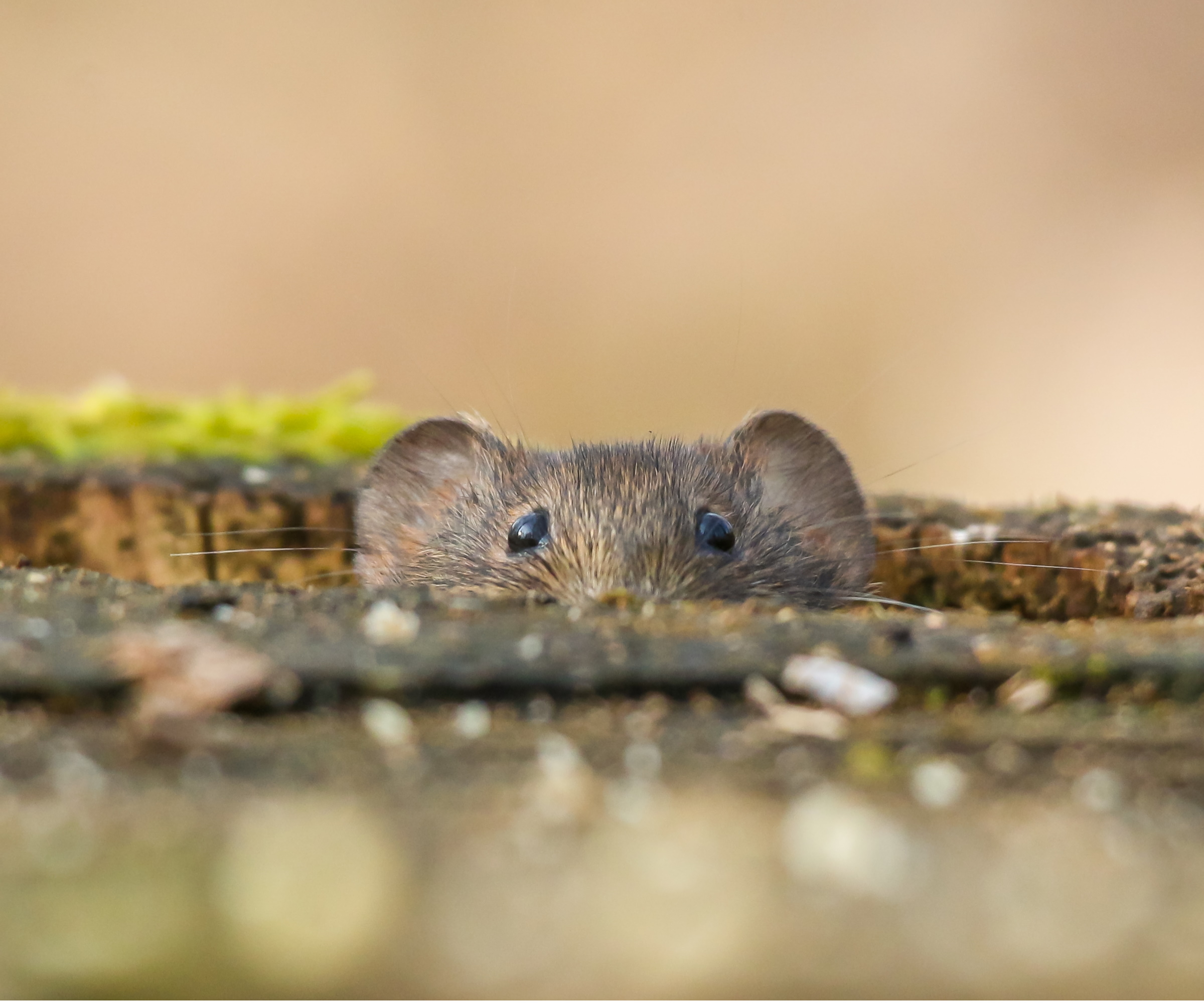
While all of the above methods help repel mice from your yard by making your outdoor space less attractive, it's wise to still put precautions in place to stop them coming into your yard and home if they do try to.
'Gaps as small as 1/4" x 1/2" are large enough to admit mice into a building,' says Craig Sansig. 'Doors, pipe chases, central AC lines, edges of siding, corner studs, holes in brick, and even gaps in soffits are common rodent entry points,' he adds.
You can seal entry points like this with steel wool or specific commercial products, like this rodent proofing control paste from Amazon.
Entry points to the yard can be a lot more difficult to control, however some measures can still be put in place:
'A two-foot pea gravel band can be installed around the home to discourage mice probing from entry points,' Craig suggests. 'The small gravel shifts under rodents' feet which they do not like, and this discourages travel on these surfaces,' he explains.
This can be made into an attractive garden feature, too, with a whole host of pea gravel path ideas to choose from.
FAQs
Do ultrasonic repellents work on mice?
Ultrasonic repellents are devices that put out high-frequency sound waves to deter a range of pests. However, they have not been found to be overly effective with mice. This is often because rodents adapt to the noise and the range of ultrasonic devices isn't always long enough to repel them. Nevertheless, ultrasonic repellents work well for deterring a range of insects. They're widely available online, like this ultrasonic pest repeller from Amazon.
Just remember these methods are specifically for trying to repel mice from your yard. If you have an mice problem indoors, you might find it helpful to do some further research into how to get rid of rodents in walls and how to use cinnamon to keep rodents out of your kitchen.
Sign up to the Homes & Gardens newsletter
Design expertise in your inbox – from inspiring decorating ideas and beautiful celebrity homes to practical gardening advice and shopping round-ups.

Tenielle is a Gardens News Writer at Homes & Gardens. She holds a qualification in MA Magazine Journalism and has over six years of journalistic experience. Before coming to Homes & Gardens, Tenielle was in the editorial department at the Royal Horticultural Society and worked on The Garden magazine. As our in-house houseplant expert, Tenielle writes on a range of solutions to houseplant problems, as well as other 'how to' guides, inspiring garden projects, and the latest gardening news. When she isn't writing, Tenielle can be found propagating her ever-growing collection of indoor plants, helping others overcome common houseplant pests and diseases, volunteering at a local gardening club, and attending gardening workshops, like a composting masterclass.
-
 How a British designer brought together the different tastes of a couple wanting to create the dream future-proofed home in the idyllic Italian countryside
How a British designer brought together the different tastes of a couple wanting to create the dream future-proofed home in the idyllic Italian countryside‘They wanted a house that would feel immediately like home the minute they arrived, and somewhere relaxing to spend time together as a family and entertain friends.’
By Fiona McCarthy
-
 What is your birth month herb? Discover the symbolic meaning behind yours
What is your birth month herb? Discover the symbolic meaning behind yoursHerbs offer symbolic wisdom, and play to the natural rhythms of the season
By Lola Houlton
